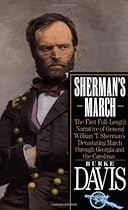That The Union Not Be Abandoned To Its Enemies
Benjamin H. Hill of Georgia wanted to hold out against secession after Lincoln's election, and rightfully labeled the purely sectional Republican party as disunionist and an enemy of the Constitution. He properly reasoned that if Andrew Jackson could coerce South Carolina for nullification, why not coerce the guilty Northern States who nullified the federal fugitive slave law?
Bernhard Thuersam, Chairman
North Carolina War Between the States Sesquicentennial Commission
www.ncwbts150.com
"The Official Website of the North Carolina WBTS Sesquicentennial"
"On the fifteenth of November (1860), following (Howell) Cobb, (Robert) Toombs and (Alexander H.) Stephens, Hill appeared before the Assembly and made an eloquent argument against immediate secession or any precipitate action. The speech is primarily a closely reasoned appeal for moderation and a plea that passion and prejudices be discarded in the face of the imminent crisis.
"What are our grievances?" asks Hill; and then he proceeds to enumerate them, outlining the discriminatory policies and propaganda of the Republican party and laying special emphasis on the nugatory action of various free-State legislatures, affecting the fugitive slave laws. Hill represents the Republican party as the really disunionist party, and quotes from various abolitionists who damn the Union and Constitution because they permit slavery. The grievances, then, are plain, and agreed of all Southern men.
Moreover, Hill believes the redress of grievances is not so hopeless a prospect in the immediate future. But suppose, for the sake of argument, redress of grievances within the Union is impossible, surely it is worth the effort; and all are agreed...that if such redress fails, then secession must come. But what are the remedies then, which are proposed within the Union.
First, the demand must be made by all the Southern States that the laws protecting slavery and requiring the rendering up of fugitive slaves must be enforced. The demand can be made as an ultimatum if need be. If necessary, let the federal government enact a force bill against any recalcitrant Northern State refusing obedience, as was done against South Carolina in 1833. Let the wrangling about slavery cease, and the entire machinery of government, if necessary, be put behind the enforcement of existing laws.
And Lincoln must come to this view. His only strength is in the law; he is bound by oath to carry out the law. A Southern president had once coerced a Southern State; now let a Northern president coerce a Northern State, if it comes to that. Hill insists that such a resolute attitude has never been taken by the Southern States, and he pleads that the Union not be abandoned to its enemies without making this effort to save it....He asks: "Is this Union good? If so, why should we surrender its blessings because Massachusetts violates the laws of that Union? Drive Massachusetts to the duties of the Constitution or from its benefits....Let us defend the Union against its enemies---not abandon it to them.
On December 6, (Howell) Cobb, in an address to the people of Georgia announcing his resignation from Buchanan's cabinet, averred that: "the Union formed by our fathers, which was one of equality, justice and fraternity would be supplanted on the 4th of March by a Union of sectionalism and hatred---the one worthy of the support and devotion of free men, the other only possible at the cost of Southern honor, safety and independence."
This was followed up on December 23 by Toombs telegram to the Savannah Morning News, after the failure of the Crittenden Compromise: "I will tell you upon the faith of a true man that all further looking to the North for your constitutional rights in the Union ought to be abandoned. It is fraught with nothing but ruin to yourself and posterity."
(Benjamin H. Hill, Secession and Reconstruction, Haywood J. Pearce, Jr., University of Chicago Press, 1928, pp 43-45)
Bernhard Thuersam, Chairman
North Carolina War Between the States Sesquicentennial Commission
www.ncwbts150.com
"The Official Website of the North Carolina WBTS Sesquicentennial"
"On the fifteenth of November (1860), following (Howell) Cobb, (Robert) Toombs and (Alexander H.) Stephens, Hill appeared before the Assembly and made an eloquent argument against immediate secession or any precipitate action. The speech is primarily a closely reasoned appeal for moderation and a plea that passion and prejudices be discarded in the face of the imminent crisis.
"What are our grievances?" asks Hill; and then he proceeds to enumerate them, outlining the discriminatory policies and propaganda of the Republican party and laying special emphasis on the nugatory action of various free-State legislatures, affecting the fugitive slave laws. Hill represents the Republican party as the really disunionist party, and quotes from various abolitionists who damn the Union and Constitution because they permit slavery. The grievances, then, are plain, and agreed of all Southern men.
Moreover, Hill believes the redress of grievances is not so hopeless a prospect in the immediate future. But suppose, for the sake of argument, redress of grievances within the Union is impossible, surely it is worth the effort; and all are agreed...that if such redress fails, then secession must come. But what are the remedies then, which are proposed within the Union.
First, the demand must be made by all the Southern States that the laws protecting slavery and requiring the rendering up of fugitive slaves must be enforced. The demand can be made as an ultimatum if need be. If necessary, let the federal government enact a force bill against any recalcitrant Northern State refusing obedience, as was done against South Carolina in 1833. Let the wrangling about slavery cease, and the entire machinery of government, if necessary, be put behind the enforcement of existing laws.
And Lincoln must come to this view. His only strength is in the law; he is bound by oath to carry out the law. A Southern president had once coerced a Southern State; now let a Northern president coerce a Northern State, if it comes to that. Hill insists that such a resolute attitude has never been taken by the Southern States, and he pleads that the Union not be abandoned to its enemies without making this effort to save it....He asks: "Is this Union good? If so, why should we surrender its blessings because Massachusetts violates the laws of that Union? Drive Massachusetts to the duties of the Constitution or from its benefits....Let us defend the Union against its enemies---not abandon it to them.
On December 6, (Howell) Cobb, in an address to the people of Georgia announcing his resignation from Buchanan's cabinet, averred that: "the Union formed by our fathers, which was one of equality, justice and fraternity would be supplanted on the 4th of March by a Union of sectionalism and hatred---the one worthy of the support and devotion of free men, the other only possible at the cost of Southern honor, safety and independence."
This was followed up on December 23 by Toombs telegram to the Savannah Morning News, after the failure of the Crittenden Compromise: "I will tell you upon the faith of a true man that all further looking to the North for your constitutional rights in the Union ought to be abandoned. It is fraught with nothing but ruin to yourself and posterity."
(Benjamin H. Hill, Secession and Reconstruction, Haywood J. Pearce, Jr., University of Chicago Press, 1928, pp 43-45)
From Free North Carolina













0 Comments:
Post a Comment
Subscribe to Post Comments [Atom]
<< Home